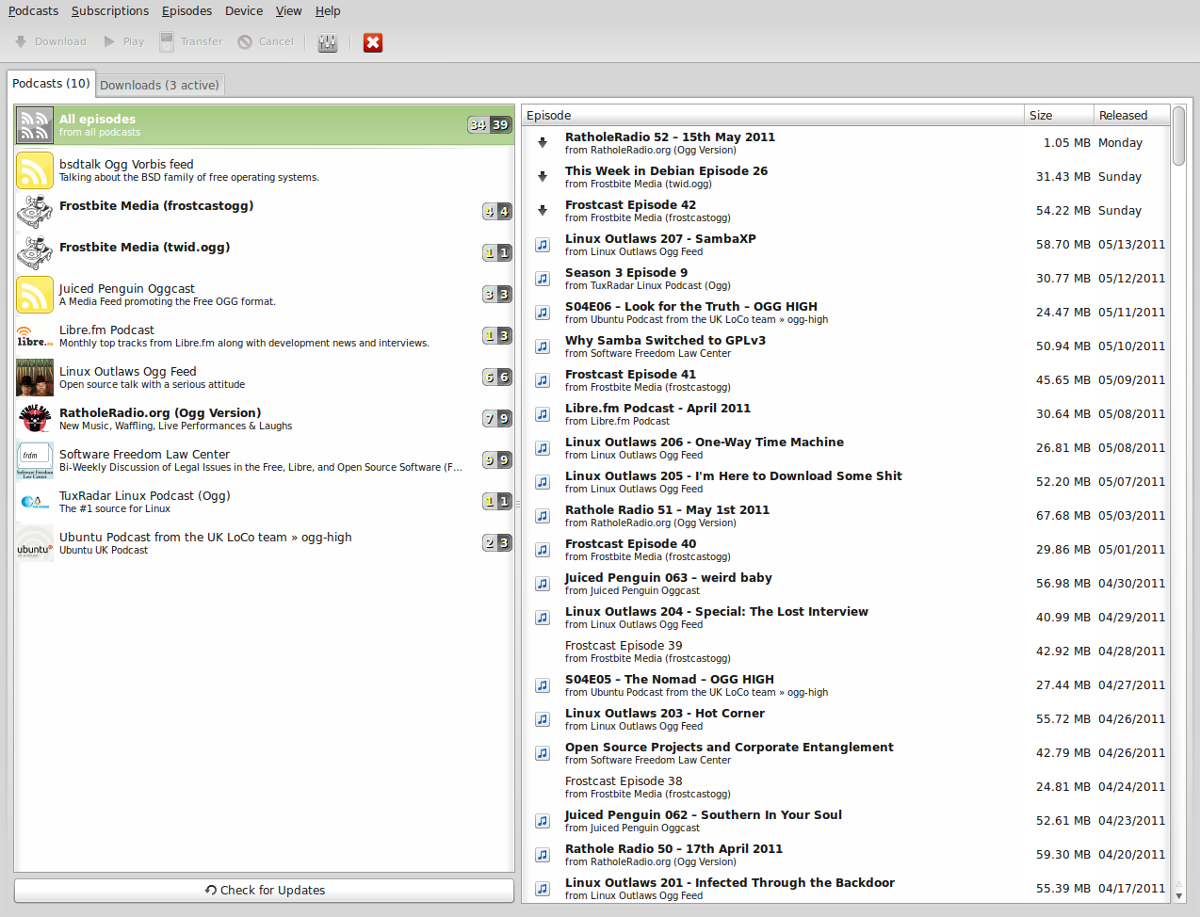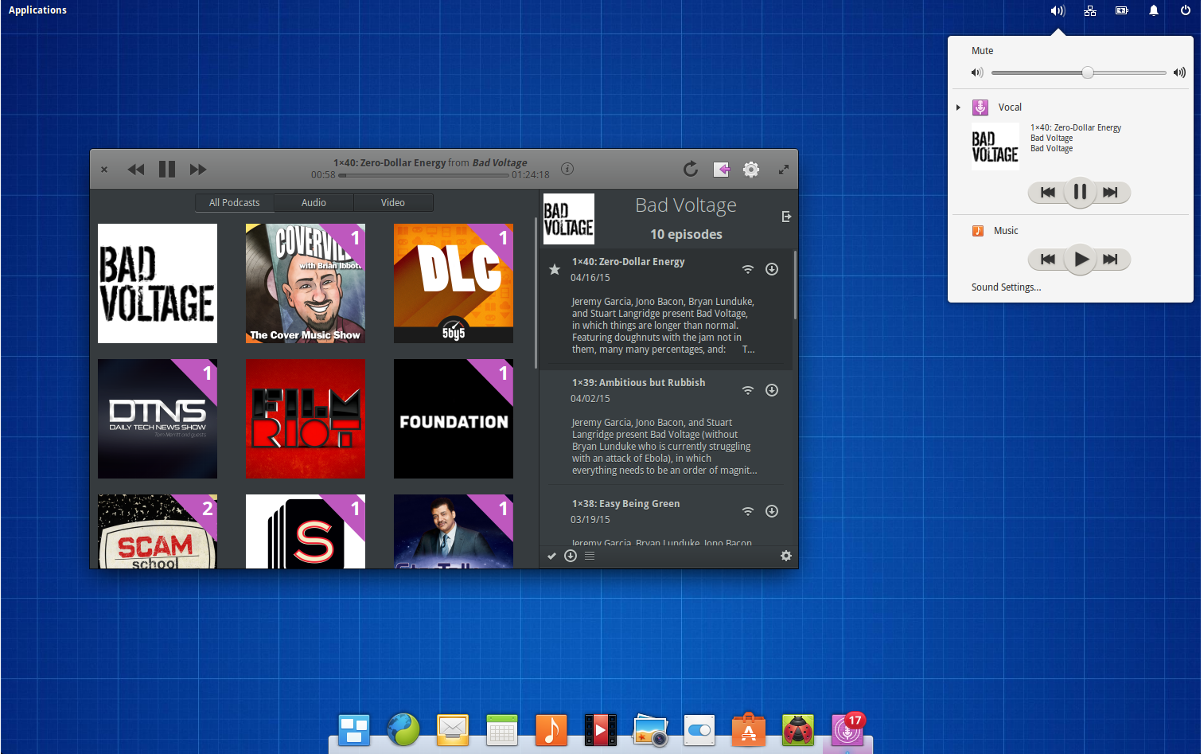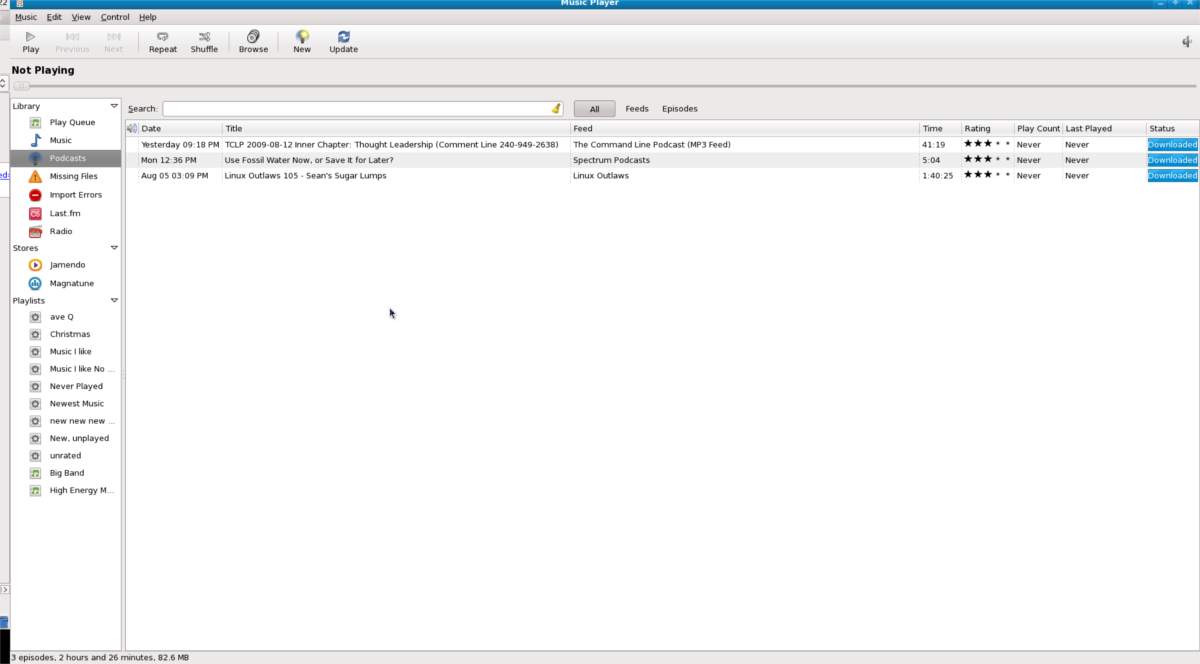4 Best Podcast Apps For Linux
Though the concept of podcasts has been around for a long time, podcasting is rapidly becoming a mainstream form of entertainment. From YouTube stars to politicians, everyone seems to have their own podcast and they want you to subscribe to it. As a Linux user, how do you go about doing that? What program do you use? If you’re not sure what kind of podcast app to use, we’ve got you covered! In this list, we’ll go over the best podcast apps for Linux. We’ll outline the features, and break down what app is best for you.
1. Gpodder

For a good long time, the best (and only) graphical podcast client for Linux was Gpodder. There’s no wonder why this is the case, as it has always managed to handle podcasts well on Linux.
These days, more and more developers are making podcast tools for Linux. Despite this, Gpodder manages to be a very attractive, and reliable tool. For starters, users can manually specify what audio/video player the tool should use by default, it has great support for MTP devices, and even lets users back up their subscriptions to the “cloud” by creating a gpodder.net account.
Though most people probably listen to podcasts on their smartphones these days, there’s no question that the best tool on Linux for this job is Gpodder.
2. Vocal

Vocal is a beautiful podcast client that comes pre-installed to the popular Linux distribution Elementary OS. It’s main focus is to give users a simple, easy to use desktop podcast client for Linux. Unlike Gpodder, the vocal app is self contained. Instead of playing podcast files externally to apps installed on your PC, everything is done right in the app.
Features include automatic downloading of podcasts, the ability to save and resume podcasts at any time, support for streaming, a “smart” library management feature that promises to keep your podcast library clean, import/export features, and more.
If you love listening to podcasts on your PC rather than your phone and you’re looking for something classy, Vocal is a good choice.
3. Spotify

Very few cloud music services are available on Linux. Most premium music services force Linux users to use a “web app” wrapper, and don’t take the time to develop a full-fledged program. Spotify isn’t one of those services. In fact, they have a native Linux app that is easily installable, and available for all major Linux distributions.
So, what does Spotify have to do with podcasts on Linux? Well, a lot actually. Turns out, the music service handles podcasts, and allows users to easily subscribe and find shows right in the program. All podcast shows are on Spotify, and there’s no need to find RSS links to get your favorite shows.
One reason Linux users should seriously consider using Spotify for podcasts is this: the music service is account based. This means nothing is actually stored locally (unless you get a premium membership). Users can subscribe to podcasts on the Linux program, and listen to the entire show there. Alternatively, users can take those same podcasts from the Linux app, and continue to them on mobile, Mac OS, Windows, and anywhere Spotify is available.
Though it might not sound like much, using the Linux Spotify app for podcasts is really compelling, as it’s more of a “podcast platform” than a simple tool for your Linux PC that downloads episodes of a podcast from an RSS feed.
4. Rhythmbox

One of the most popular ways to manage podcasts on Linux is directly within a music player. Many people opt to go this route, rather than a stand-alone program for one main reason: podcasts are just one aspect of their media diet.
While it’s true that programs like Vocal and Gpodder offer great features, Rhythmbox still is a good option, as it operates a lot like iTunes. Users can click on the podcast tab in the player, and manage shows they like. They can subscribe, and play episodes on their PC. In addition to this, because the program is a music player, users can easily take advantage of MP3 player/smartphone syncing features, and take podcasts on the go.
Overall, the podcast management in this music player is very basic, but this isn’t necessarily bad, and some people don’t need fancy, “beautiful” programs that automatically manage things for them. If you’re looking for a quick, easy way to manage your podcasts on Linux, Rhythmbox is a really good choice.
Conclusion
There really isn’t a lot of choice in terms of podcast apps for Linux. This is largely due to the fact that most people consume podcasts directly from their smartphones. As a result, Linux has less of a focus in this area.
Despite the fact that Linux doesn’t have as heavy of a focus, the podcast apps on this list are great. Each of them offer up some real creative, and useful ways to download your favorite podcast shows.
